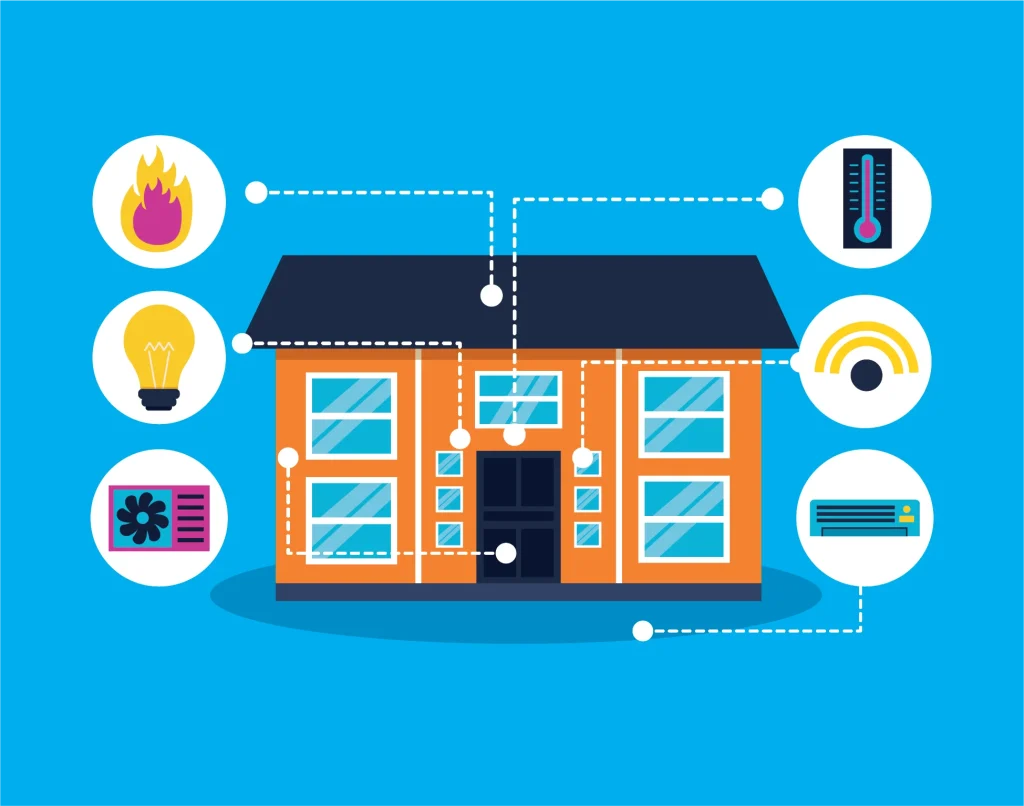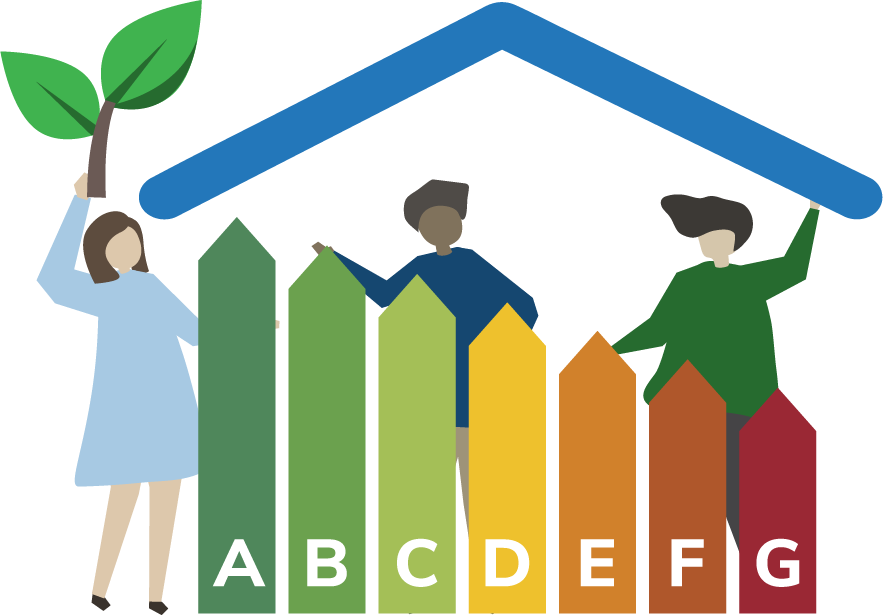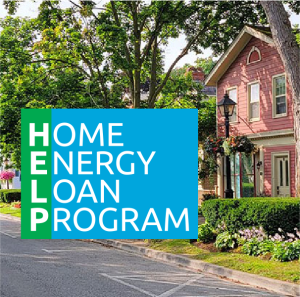A residential energy audit, also known as a home energy assessment, is a comprehensive evaluation of a home’s energy usage and efficiency.
During a residential energy audit, trained professionals assess various aspects of the home, including insulation levels, heating and cooling systems, appliances, lighting, and air leakage. The goal of the audit is to identify areas where energy is being wasted and to recommend cost-effective measures to improve energy efficiency.
The audit typically involves a combination of visual inspections, diagnostic tests, and data analysis to assess the home’s energy performance. Based on the findings of the audit, homeowners receive a detailed report outlining recommended energy-saving upgrades and improvements that can help reduce energy consumption, lower utility bills, and increase overall comfort and sustainability in the home.
What happens During residential Energy Audit?
During a house energy audit, a trained professional assesses the energy efficiency of a home by conducting a thorough evaluation of various aspects of the property. The audit typically includes the following steps:
- Inspection of the home’s exterior and interior: The auditor will examine the building envelope, including walls, windows, doors, and insulation, to identify areas of air leakage and inadequate insulation.
- Assessment of heating and cooling systems: The auditor will evaluate the efficiency of the home’s heating, ventilation, and air conditioning (HVAC) systems, including checking for proper maintenance and potential upgrades.
- Evaluation of lighting and appliances: The auditor will assess the energy efficiency of lighting fixtures, appliances, and electronics in the home, recommending energy-saving replacements if necessary.
- Analysis of energy usage: The auditor may review utility bills and conduct tests to measure energy consumption patterns, identifying opportunities for energy savings.
- Recommendations for energy saving improvements: Based on the findings of the audit, the auditor will provide a detailed report outlining recommended upgrades and improvements to enhance the home’s energy efficiency.
Overall, an energy audit helps homeowners understand their energy usage, identify areas for improvement, and make informed decisions to reduce energy consumption and lower utility costs.

Who does an Energy Audit?
A house energy audit is typically conducted by a certified energy advisor. These professionals have the knowledge and expertise to assess the energy performance of a building and identify areas where energy efficiency improvements can be made.
At All Season Inspection, we have helped thousands of homeowners to improve the energy efficiency of their homes through Energy Audit. We have been able to achieve this by the help of our experienced and knowledgeable Energy advisors.
All of home energy advisor are registered by NRCan.
How Do I Get residential Energy Audit?
To get a house energy audit for your home, you can follow these steps:
- Schedule an appointment: Contact us or book your energy audit online to schedule an appointment for a home energy assessment. Be prepared to provide information about your home’s size, age, and energy usage.
- Prepare for the audit: Before the scheduled appointment, gather any relevant information about your home, such as utility bills, floor plans, and details about your heating and cooling systems.
- Conduct the audit: During the energy audit, a trained professional will visit your home to assess its energy performance. They will inspect various aspects of your home, such as insulation, windows, appliances, and HVAC systems, to identify areas where energy efficiency improvements can be made.
- Receive recommendations: After the audit is completed, the energy auditor will provide you with a detailed report outlining recommended energy-saving upgrades and improvements that can help you reduce energy consumption and save money on utility bills.

How Long Do residential Energy Audits Take?
The duration of a house energy audit can vary depending on the size and complexity of the home, as well as the thoroughness of the audit being conducted. On average, a comprehensive energy audit for a typical single-family home can take anywhere from 2 to 4 hours to complete. This timeframe includes the initial assessment of the home’s energy usage, the inspection of various systems and components, the collection of data, and the generation of recommendations for energy-saving improvements. It is important for the energy auditor to take the time needed to accurately assess the home’s energy performance and provide valuable insights for potential energy efficiency upgrades.
Is residential Energy Audit Worth Doing?
Yes, a house energy audit is worth doing as it can provide valuable insights into the energy efficiency of your home and help you identify areas where you can make improvements to save energy and reduce utility costs.
An energy audit can help you:
- Identify energy inefficiencies: An energy audit can pinpoint areas in your home where energy is being wasted, such as drafts, inadequate insulation, or inefficient appliances.
- Prioritize energy-saving upgrades: By understanding where your home is losing energy, you can prioritize upgrades and improvements that will have the most significant impact on reducing energy consumption and lowering utility bills.
- Increase home comfort: Energy audits can also identify issues that may be affecting the comfort of your home, such as uneven temperatures or poor indoor air quality, allowing you to address these issues and create a more comfortable living environment.
A residential energy audit is a comprehensive assessment of a home’s energy usage and efficiency. Through this process, professionals evaluate various aspects of the property, such as insulation, appliances, lighting, and HVAC systems, to identify areas where energy is being wasted. By conducting a residential energy audit, homeowners can gain valuable insights into their energy consumption patterns and receive recommendations on how to improve efficiency, reduce utility bills, and lower their environmental impact. Ultimately, investing in a residential energy audit can lead to long-term cost savings, increased comfort, and a more sustainable living environment.
In conclusion, a residential energy audit is a crucial step towards improving energy efficiency, reducing utility costs, and creating a more sustainable living environment. By identifying areas of energy waste and implementing recommended improvements, homeowners can not only save money in the long run but also contribute to a greener future. Investing in a residential energy audit is a proactive measure that benefits both the individual and the planet as a whole.
Book Your Energy Audit
Home Energy Audit is the first step to apply for any energy retrofit rebate.
"*" indicates required fields














